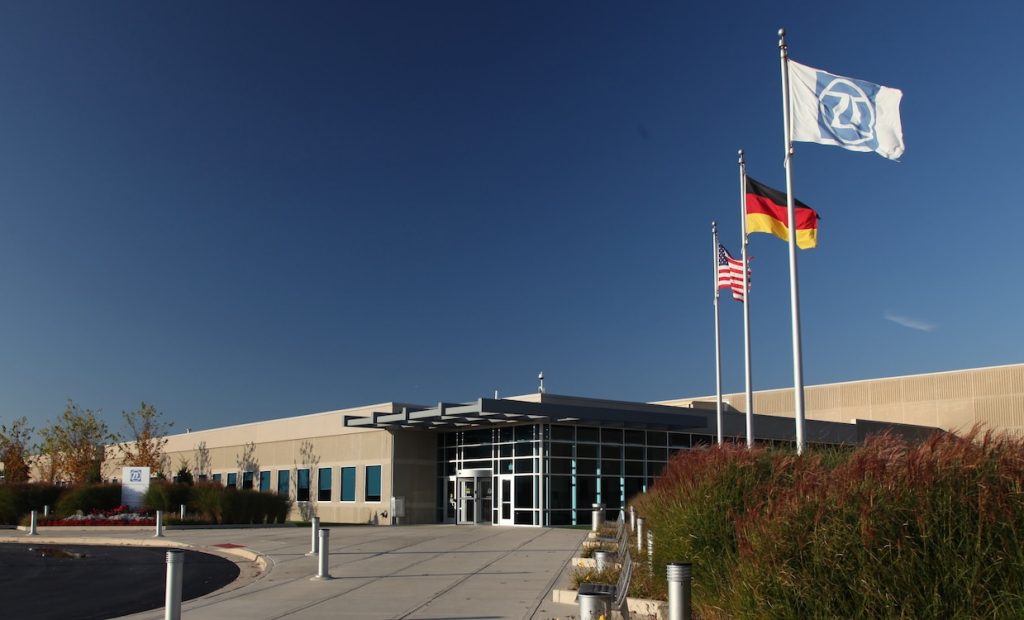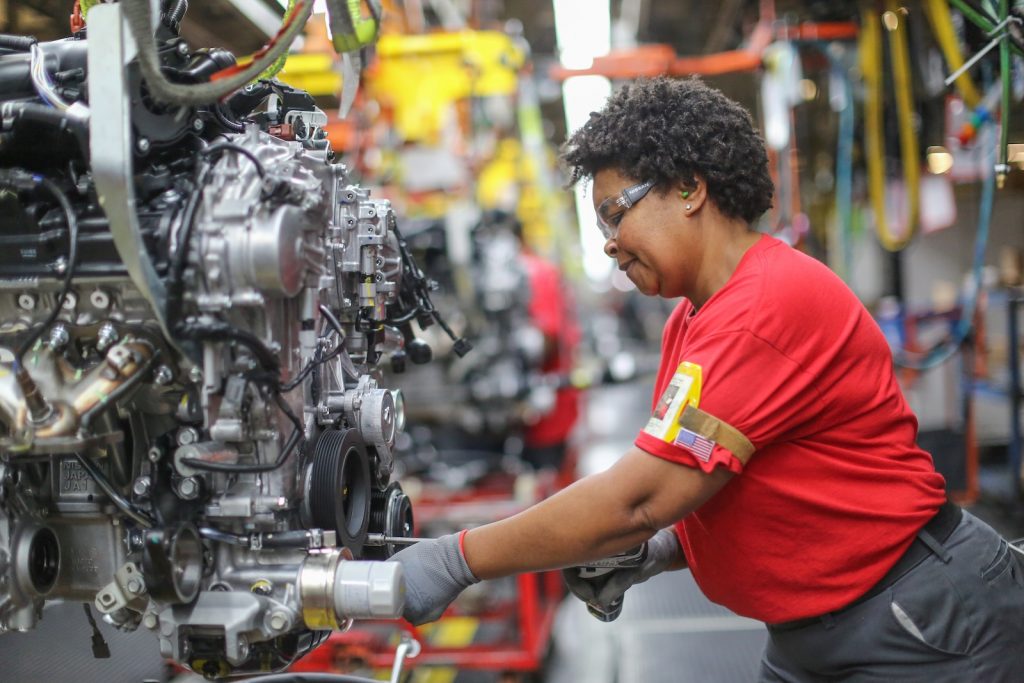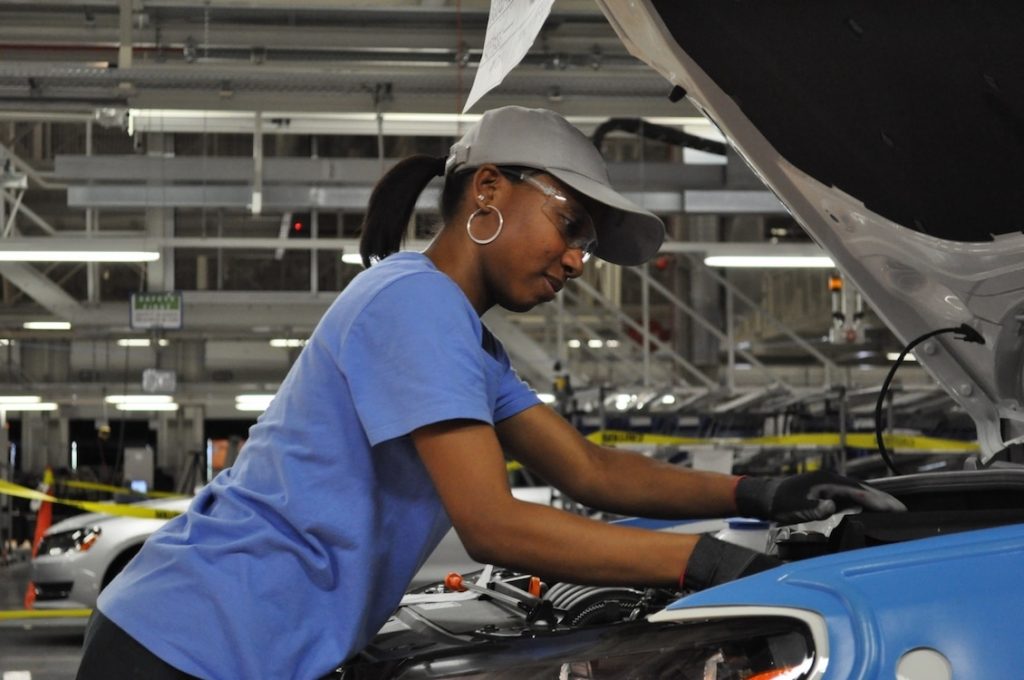ZF Friedrichshafen AG agreed to recognize the United Auto Workers as the representative of employees at a ZF axle plant in Marysville, Michigan following a card check rather than an election supervised by the National Labor Relations Board.

Recognition resolves a festering labor dispute that led to a one-week recognition strike in early September by some of the employees at the Marysville plant that could have threatened production of pickup trucks and SUVs for Stellantis.
ZF recently signed a $6 billion contract with Stellantis that involved outsourcing work previous done in house by Fiat Chrysler, which merged with PSA to create Stellantis earlier this year.
As part of a 2019 deal, Stellantis employees who built axles will transfer to other jobs with the automaker. In fact, some of those transfers are in progress, but the UAW wanted to ensure the axle jobs remained union work.
ZF was not opposed to the idea since it needed the goodwill of the UAW to maintain production during the transition involving a valuable contract.
The big German supplier, one of the largest in the union, initially balked at the UAW’s preference for a card check and asked for an NLRB election to create the new union bargaining unit, fearing perhaps what the union describes as a “voluntary recognition process” would create a precedent that could be used at other non-union ZF plants in the U.S.

Resolution could serve as model
As it stands, the ZF recognition could serve as a template for the UAW to win recognition attend new electric vehicle and battery planned by Ford and General Motors in right-to-work states such as Tennessee and Georgia.
“Ultimately, the sacrifices of the ZF employees will benefit UAW members and families at ZF Marysville and the Marysville community for decades to come,” said UAW Secretary-Treasurer Frank Stuglin.
The shift of the plant from then-Fiat Chrysler in 2019 to ZF wasn’t without its issues. Members of United Auto Workers Union Local 961 sued both the UAW International and Fiat Chrysler Automobiles to prevent the automaker from transferring the axle plant to ZF. The deal allowed the transfer to continue.
Finding ways to convince workers at plants across the southeastern U.S. to join the UAW has been difficult — in fact, impossible. Hourly workers at the Volkswagen plant in Chattanooga, Tennessee have shot down union representation multiple times.

Additionally, plants owned by Nissan, Hyundai, Mercedes-Benz and more are all union free as are Honda’s facilities in Ohio and Indiana.
New battery plants offers new potential
The aforementioned plants in process at GM and Ford will soon begin hiring hourly workers and both automakers have been playing it down the middle when asked about welcoming the UAW — which is required by law.
“As we deliver on our plans to create an all-electric future, GM will build on a long history of supporting unions to promote safety, quality, training, and well-paying jobs for American workers,” the GM said in a statement. “Both GM and Ultium Cells LLC respect workers’ right to unionize and the efforts of the UAW to organize battery cell-manufacturing workers in Ohio and Tennessee at our joint venture sites.”
GM’s first new battery plant is closing in on final production in Lordstown, Ohio, where it previously built a variety of vehicles for decades, most recently the Chevrolet Cruze. It discontinued the vehicle and sold the plant to EV truck maker Lordstown Motors. The second will be built near its existing Spring Hill, Tennessee plant where the Cadillac Lyriq will be produced.
Ford’s Blue Oval City is an $11.4 billion enterprise that will build batteries and an EVs just outside Memphis as well as two more battery plants in Kentucky. Jim Farley, in an interview with TheDetroitBureau.com, said the plants could have union representation.
“We have a great working relationship with the UAW,” he said. “The governor (of Tennessee Bill Lee) said it’s the workers’ choice and we’ll honor that. But we’re really optimistic about our relationship with the UAW. If it falls that way, we’ll be really excited.”







